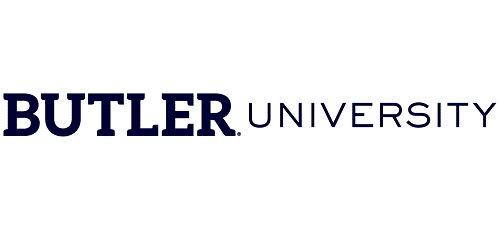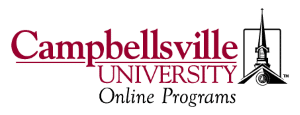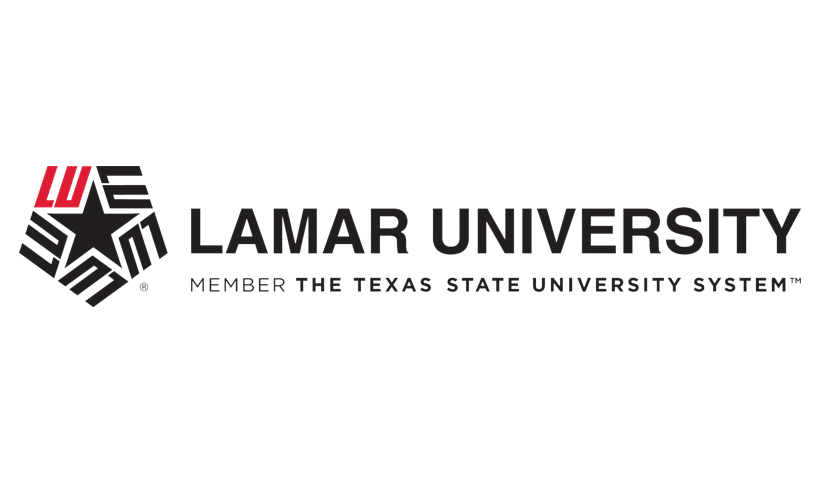One of the board certifications offered through the National Board of Certified Counselors (NBCC) is the National Certified School Counselor (NCSC) designation.
Gaining a Master’s degree in a counseling discipline and receiving the appropriate amount of hours in clinical experience and supervision is required to gain this specialty certification in addition to the broader National Certified Counselor (NCC) accreditation.
Receiving a board certification distinguishes professionals from others by completing specific education requirements and furthers career advancement and salary pay.
The NCSC establishes the top professionals within school counseling, going through a rigorous education process with many hours of supervision and clinical training. They have earned a Master’s degree from an accredited institution and have passed nationally recognized examination. This is a board certification that does not provide state licensure to practice, but it can increase job potential and salary estimates for these positions.
At least a Master’s degree is required when needing either the NCSC or NCC certification, but there is no minimum requirement for credits needed with the NCSC (NCC certification requires 48 semester credit hours). Programs should hold some clinical experience as this will be a requirement in some states for the school counseling licensure.
It is recommended that students consider programs that have been designated by the Council for Accreditation of Counseling and Related Educational Programs (CACREP) as they typically have all the academic requirements for certifications and licensures.
The Need For Licensure in School Counseling
School counselors aid in the success of students at various points of their life. They make adjustments to their philosophy and give them focus during the early elementary years, and continue to help them look toward the future by developing an academic path toward a successful career.
In times of struggle that take place in school or outside the classroom, counselors have the ability to evaluate and proceed down a specific treatment path.
Education Requirements For This Certification
When pursuing educational opportunities in counseling, it is important to review what is required in both the NCC and NCSC certifications. Specifically required within the NCSC, separate courses that span at least two semester credit hours must be from topics such as counseling addictions and trauma, or for specific groups such as children, families, and young at-risk individuals.
Supervised field experience within the program must total six semester credit hours. As some programs do not have or offer limited clinical work within them, this can be substituted for those that already have state licensure as a school counselor for 10 consecutive years, or they have can have 120 hours of direct supervision. These options still require the completion of three semester credit hours within the program, which an internship can fulfill.
In order to be recertified as a NCSC, there are specific continuing education guidelines that must be met. Clock hours must include topics in group counseling, career development, cultural diversity, fundamental aspects of this field, and more related information. There should be continuous ethical standards that are being met and fees must be paid in order to continue holding the certification.
Consider a Featured Online Counseling Program
| School and Program Information | Online Program? Entry Requirements | Course Information | |
|---|---|---|---|
|
Walden University
MS in School Counseling
 CACREP Accredited CACREP Accredited |
✔ Online
GRE scores not required
|
Empower students with the CACREP-accredited MS in School Counseling program at Walden. Build a solid foundation in school counseling theories, approaches, and best practices and gain hands-on experience.
|
Learn More |
|
Walden University
MS Dual Degree in Clinical Mental Health Counseling and School Counseling
 CACREP Accredited CACREP Accredited |
✔ Online
GRE scores not required
|
Expand your opportunities as a counseling professional with Walden's online MS Dual Degree in Clinical Mental Health Counseling and School Counseling.
|
Learn More |
|
Walden University
PhD in Counselor Education and Supervision, School Counseling
HLC Accredited
|
✔ Online
|
Expand your influence with Walden's PhD in Counselor Education and Supervision. Specialize in School Counseling to support students and families through systems-based, research-informed practice.
|
Learn More |
|
Grand Canyon University
Master of Education in School Counseling
 CACREP Accredited CACREP Accredited |
✔ Online
|
At GCU, school-counselors-in-training candidates develop into more than school counselors, they grow into compassionate, servant leaders with strong ethics and morals to positively make a greater difference in communities and the lives of children.
|
Learn More |
|
Liberty University
MED: School Counseling
 CACREP Accredited CACREP Accredited |
✔ Online
Online with required intensives
|
Liberty University’s CACREP-accredited Master of Education (M.Ed.) in School Counseling can help equip you to work as a school counselor in Christian, public, and private schools. Online and on campus. Training Champions for Christ since 1971.
|
Learn More |
|
University of Denver
Master of Arts in School Counseling
 CACREP Accredited CACREP Accredited |
✔ Online
No GRE Required; Minimum GPA 2.5 Required
|
With no GRE required, earn your CACREP-accredited Master's in School Counseling online in as few as 24 months from the University of Denver.
|
Learn More |
|
The Chicago School
Ph.D. in Counselor Education and Supervision
|
✔ Online
Master's Degree Required.
|
Prepares graduates to act as educators and leaders in the field of counseling.
|
Learn More |
|
Colorado Christian University
School Counseling, M.A.
HLC Accredited
|
✔ Online
Bachelor's Degree
|
Complete in as little as 30 months of consecutive coursework. Required 5-day, on-campus residency each summer of the program. CACREP is in process.
|
Learn More |
|
Sacred Heart University
Master of Arts in School Counseling
NECHE accredited
|
✔ Online
GRE/GMAT not required
|
The online Master of Arts in School Counseling degree from Sacred Heart University delivers the expertise you need to become an ethical and data-driven school counselor. With training from expert educators and a curriculum founded on the latest research and current best practices, you'll discover what it takes to support PK–12 students through academic development, college and career readiness and social-emotional learning. Next Start is Summer 2023.
|
Learn More |
*Sponsored Counseling Programs
For detailed degree information, view the guides to:
Online CACREP Accredited programs | Online MPCAC Accredited programs
What Does It Take To Get This Certification?
Like other specialty certifications that are offered by the NBCC, the NCSC requires earning the NCC certification first. This requires a Master’s degree with at least 48 semester credit hours worth of counseling topics and must meet nine categories, such as repairing relationships, group counseling, and research and program evaluation. At least 100 hours of supervision and two academic years of work experience is needed unless these professionals are already licensed by the state or have already completed this in an accredited program.
Other necessities include honoring the NBCC’s Code of Ethics. All certified professionals must take needed action to prevent patients from causing harm to themselves or those around them, services can only be offered by the professional if they earned the experience needed to be proficient with them, they must understand that their behavior and trustworthy is important, and are accountable for their decisions and actions when practicing in the field.
A professional that was not part of the supervision process for the individual must verify and endorse this work as qualified for the certification. Students have the option of taking and passing either the National Counselor Examination or the National Clinical Mental Health Counseling Examination. This is offered twice per year with a fee and is also needed with the NCC certification.
Top Degree Programs For This Certification
University of Louisiana-Monroe
The Master of Science in Counseling is available fully online with a concentration in either Clinical Mental Health Counseling or School Counseling. The latter is geared toward specifically helping students succeed within grade schools (Kindergarten through 12th grade). Typical needs include supportive guidance on classwork, offering advice on difficult situations away from the school, and determining their best career path when venturing later into their schooling.
Completion of this program does meet the requirements for licensure set in the state of Louisiana, but prospective students should review if this is the case in their local state. In rare occurrences, some states will have restrictions or alternative guidelines for online education.
For the online experience, students will generally have coursework that is completed on an asynchronous basis, meaning they have the ability to watch on-demand course lectures and access course materials when available. There are typically assignments and exams that must be finished at a certain time. Resources are available for students that are interested in pursuing the online program but struggle to maintain the balance of family life, their career, and gaining an education.
Students will complete at least 600 hours worth of internship experience in the span of two semesters and an additional semester of practicum experience with 100 hours of experience. For students that live in states that require more hours within the program, this can be altered within the schedule. Students also have the responsibility of finding an institution or facility that accepts school counselors and is approved by the program director.
Lamar University
This online program is the Master of Education in Counseling and Development with a concentration in Professional School Counseling. This is a 60-credit hour program that is completed within a span of 30 months. Included is a one-time residency that is required for students to gain an understanding of what the program includes, and 30 weeks dedicated to the practicum and internship that is split evenly.
The school counseling practicum will be based at the school directly under supervision during the school day. This is similar to the internship, but there are different prerequisites required between the two. Before taking the internship, students must have completed the courses of Counseling Skills, Individual Counseling Theories and Techniques, and Group Counseling Theories and Techniques.
A majority of the academic courses are offered in an accelerated five-week span, offering the ability to focus and take many courses in a row. One example of course offerings available through this program is Foundations of Professional Counseling, which sets the stage for the history and philosophy behind this career field. There is also an advanced look at ethics in mental health, topics on substance abuse and multicultural counseling, and psychopathology.
University admission requirements include the submission of official transcripts with a 2.5 cumulative GPA or higher and the application with fee. For the Department of Counseling specifically, students must submit an essay, multiple references from supervisors, a teaching certificate, and at least two years of teaching experience. There should also be proof of taking a practicum or internship within counseling during the Bachelor’s degree program when applying for state licensure in the state of Texas.
University of Seattle
The Master of Arts in Education has a concentration in School Counseling that is accredited by the CACREP. Students will be prepared for both state licensures in mental health counseling and the specialty NCSC certification for careers in school counseling. 90 credit hours are required to complete the program, which approximately takes three years to complete.
The curriculum is divided up into three different segments, beginning with the foundational aspects of education research and social justice issues. The core courses include the skills needed to consult with students, theories behind counseling and psychotherapy, and psychopharmacology. Additionally, 16 credit hours are reserved for practicum and internship sessions to gain clinical experience needed within the program.
Goals for the program include preparing school counselors to practice in an ethical and legal manner, following all the rules and regulations of the institution they work for. They must have thorough knowledge in varying backgrounds of individuals and respect different cultures around the world. Ultimately, they must help them return to a sense of normalcy through their mindset, helping them make better and more informed decisions in the future.
Practicum and internship requirements are completed at locally approved facilities if the program is taken online. A minimum of 100 hours is needed in the practicum, with 40 of those hours dedicated to direct contact. For the internship, 600 hours are needed with 240 direct contact hours, and there is an orientation requirement that occurs prior to enrollment in either experience.
Steps To Licensure
Each state has a different process when it comes to receiving licensure in school counseling and is handled through the state’s Department of Education. Students should review the education requirements, hours of supervision and experience, and what examinations are needed to receive the licensure.
Frequent requirements when reviewing states include the need to have a Master’s degree from an accredited institution. Many programs that have a designation from the CACREP will meet specific curriculum that is required from states. At the very least, a regional accreditation is recommended to validate the program, otherwise the curriculum will need to be reviewed by the state with further submission requirements necessary to determine its effectiveness in education.
States will have variations on the number of hours needed for clinical experience within a practicum and/or internship within the program. This also varies in postgraduate experience, and depending on the state, there can be some overlap in the clocked hours. Many states will require a background check to receive licensure, and certification is generally awarded for education levels between Kindergarten and 12th grade.
Career Options
School Counselors
School Counselors are central figures in educational settings, expertly blending psychological insights with educational strategies to support student development. In early education, they are crucial in identifying and addressing learning disorders, tailoring educational approaches to meet individual needs. This might involve close collaboration with teachers and parents to design specialized programs for students who are either struggling or excelling. Their role is integral in ensuring each child’s academic journey is both challenging and supportive, adapting to the unique learning curves and potentials of each student.
As students progress, the School Counselor’s role shifts towards preparing them for higher education. They guide students in course selection, aligning their academic pathways with future college majors, and facilitate access to advanced placement or dual credit courses. These courses not only enrich the high school experience but also provide a foundational step into college education. Beyond academic guidance, School Counselors are pillars of emotional support, creating safe spaces for students to navigate the complexities of adolescence. Their multifaceted role encompasses educator, advisor, and confidant, making them indispensable in shaping well-rounded individuals poised for future success.
Guidance Counselor
General school guidance counselors are tasked with many duties based on the size of school district and the grade level they operate within. Duties may include identifying learning disorders early on and determining the best treatment solution. They may provide alternative education to those that fall behind or excel the majority of students in their current grade level.
Later on in a students’ educational career, guidance counselors will aid in the preparation for higher education. This includes enrollment in courses that are of a similar topic or prerequisites for an undergraduate degree. For some high schools, they offer dual credit courses that count toward the senior year and an introductory-level credit for an undergraduate program.
Career Counselor
On a related note, career counselors assess clients’ strengths and weaknesses when it comes to their ability to get a job. They establish strong skills they can offer and give them advice or goals to improve in other areas. In addition, they may aid in job searches or provide insight on potential opportunities they could excel in.
For clients that are already hired, career counselors may also help them in solving any organizational issues, such as any friction between other employees or struggles with learning new job obligations. They may also assist in finding different opportunities when needed, or networking possibilities by joining conferences or events within the career field.
According to the US Bureau of Labor Statistics, it is estimated that school and career counselors will see a job increase of 8 percent between 2018-28, which is higher than the general average. The increase is due to universities implementing more resources for students to transition into a career easily after their education. With increased technological advancement, those in the workforce will look toward education for increased job security.
















